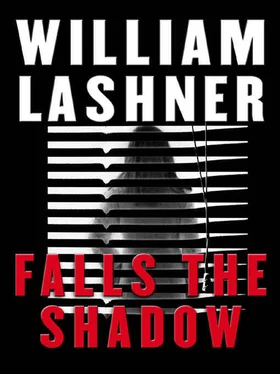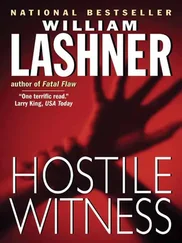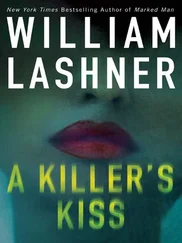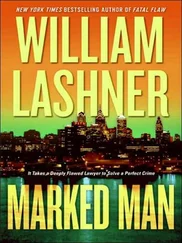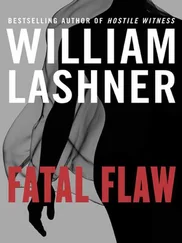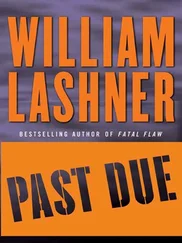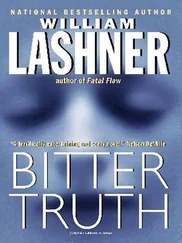The nurse with the pale face and black eyes who had been staring out the window of his house as we spoke in the back, that nurse. How strange was that?
“You should let him help you any way he can if you have the chance,” said Whit. “I sense he’s a bit of a sad case, actually, a lonely man who likes to do good.”
“I don’t know how lonely,” I said. “Not with Tilda to keep him company.”
“Oh, you don’t think…” He paused for thought and then burst out into laughter. “Oh, my, you might be right. But what an odd couple. She must give him quite the workout.” More laughter. “I’d bet she could twist him into a pretzel. But, Victor, enough gossip. Old men talk about what others are doing because we can’t do it ourselves any longer. But a young man like you-”
“Not so young.”
“Bosh. So about the trial, did you find anything new to argue? Have you a theory of the murder that might sway the jury?”
“As a matter of fact,” I said, nodding, “we’ve stumbled onto something. Remember when you said your biggest problem at the first trial was that you had no suspects? Well, we found one.”
“Really?” His eyes brightened with interest, he leaned forward. “Who?”
“Someone not mentioned in the first trial at all,” I said. “A man named Clem.” And then I told him of what we had learned, about Leesa’s good friend Velma, about their attempts to relive their wild youth, about the man with the motorcycle whom Velma took on as a lover and then passed on to Leesa, about the fights, the intimations of violence, and the way Clem had up and disappeared suddenly after the murder. I watched closely as I told him everything. I worried that he might act defensive, might wonder how he had missed such a suspect, might think I was accusing him of failing at his prior representation of my client, but the only expression I could see on his face was relief.
“That’s extraordinary, Victor. Do you have evidence for all of this?”
“Absolutely.”
“Simply extraordinary. And the prosecution, Ms. Dalton, does she know about Clem?”
“Not that I know of,” I said with a smile.
“Marvelous.” He clapped his hands and laughed. “I am so proud of you, boy. You have taken the case and made it your own. I thought I might be able to help, but I can see that I am not needed at all.”
“Well, there is one thing,” I said.
“Pray tell.”
“François says the landlord sold off all his possessions while he was in jail, but I think there was stuff missing even before the murder. Any idea what might have happened to it?”
Whit pursed his lips, thought about it. “No, no idea. Is it important?”
“I don’t know, that’s the point. I’m just curious.”
“Curiosity. Very good,” said Whit. “That’s always the key to being a good lawyer.”
“Or a dead cat. Can I ask you something else?”
“Of course, anything.”
“This is a bit awkward.”
“Go ahead, my boy.”
“François. Is he… how should I put this?” I glanced around, stood, walked over to close the conference-room door. When I sat back down, I leaned close and spoke softly. “In your experience with François Dubé, have you found him to be a creep?”
“A creep?”
“Is that too loose a term?”
“No, I think I understand. Why do you ask?”
“My partner.”
“Ms. Derringer.”
“I think maybe she’s… I don’t know for sure, but…”
“You think she’s become emotionally involved with your client?”
“In some way, yes.”
“That’s bad, Victor. Very bad.”
“I know.”
“No, you don’t. How serious is it?”
“I think damn serious.”
“François has a certain power. My wife felt it when she met him. She was in her seventies, way past menopause and already ill, and still she felt it. She said it was something in his eyes. The way he looked at her. Maybe it was his French sincerity, maybe it is that little flaw of gold. But you have reason to be worried.”
“Why?”
“Between the idea and the reality, between the motion and the act, falls the Shadow.”
“Whit?”
“It’s from a poem by Eliot, called ‘The Hollow Men.’ François Dubé can be a charmer, but there is something hollow inside him.”
“Whit, she’s my partner, she’s my best friend.”
“Between the conception and the creation, between the emotion and the response, falls the Shadow.”
“What shadow?”
“There are things I cannot tell you, Victor, you understand. My relationship with François remains as protected as yours. But these things, if you knew of them, in the context of which now we speak, would disturb you greatly. And these are not just stories I am talking about.”
“I don’t understand.”
“There may be evidence.”
“What kind of evidence?”
“Physical evidence. I never saw it, mind you, but in the course of my representation, I came to learn of its existence. And the whole of the trial, I was terrified that it would somehow show up. I knew that its presence before the jury would be devastating.”
“Where was it?”
“I don’t know.”
“What happened to it?”
“Whether it has been destroyed or hidden, I have no idea. But under any circumstance, you cannot let this evidence be exposed to the jury. At the same time, Victor, and I tell you this as a friend, you have good reason to be worried about Ms. Derringer.”
“Whit, you need to tell me more.”
“Between the desire and the spasm, between the potency and the existence, between the essence and the descent, falls the Shadow.”
“Whit, what are you trying to say?”
“I’m answering your question as best I can, within the bounds of my duty. You asked me if François was a creep. And what I’m saying is that you can’t imagine the half of it.”
I know how to open a bottle of wine – twist the corkscrew until the cork disintegrates, pour through a strainer. And I know how to open a new CD in its theft-proof package – fire up the chain saw. But the right way for a defense attorney to open up a murder trial, now, that’s always a bit of a puzzle.
Some parts are simple. When the judge calls your name, you stand and button your jacket, step toward the jury. You smile at the fourteen of them, twelve jurors and two alternates, as if they were your bestest, bestest friends, even though all the time you’re thinking, How did we end up with these bozos? And then you begin.
“Ladies and gentlemen, my name is Victor Carl. My partner’s name is Beth Derringer. And today we stand before you with the awesome responsibility of defending our client, François Dubé, against the charge of murdering his wife.”
Now you have to describe the crime scene. You have to talk about Leesa Dubé sprawled on the floor of her bedroom, lying in a pool of her own blood, her neck torn apart by a bullet fired at close range. You even let your voice choke when you talk about the blood soaking her beautiful auburn hair. You can’t minimize the murder, you can’t dismiss it or avoid it – she’s dead, baby, ain’t no use denying that fact – so instead you embrace it. Don’t ever let the prosecution possess the murder, snatch it from them and make it your own.
Then, and this is important, then you have to step over to your client. You have already put him in a suit, a nonyellow tie, you’ve had him don a pair of studious-looking glasses. Now you have him stand and face the jury while you put your arm around his shoulders. The prosecutor has already stuck his finger in your client’s face and called him a murderer, you have to do him one better. You’ve just barely held on as you described the crime, now you stand with your arm around the man the Commonwealth has accused of committing it. You don’t have to say a thing, the jury understands. How could you embrace this man unless you were sure he was innocent. How indeed?
Читать дальше
